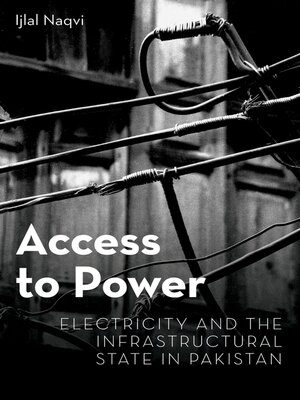Access to Power
ebook ∣ Electricity and the Infrastructural State in Pakistan · Modern South Asia
By Ijlal Naqvi

Sign up to save your library
With an OverDrive account, you can save your favorite libraries for at-a-glance information about availability. Find out more about OverDrive accounts.
Find this title in Libby, the library reading app by OverDrive.



Search for a digital library with this title
Title found at these libraries:
| Library Name | Distance |
|---|---|
| Loading... |
This is an open access title available under the terms of a CC BY-NC-ND 4.0 International license. It is free to read at Oxford Scholarship Online and offered as a free PDF download from OUP and selected open access locations. Pakistan would desperately like to produce enough electricity, but it usually doesn't. Despite prioritization by successive governments, targeted reforms shaped by international development actors, and featuring prominently in Chinese Belt and Road investments, the Pakistani power sector continues to stifle economic and social life across the country. Why? In Access to Power, Ijlal Naqvi explores state capacity in Pakistan by following the material infrastructure of electricity across the provinces and down into cities and homes. Naqvi argues that the national-level challenges of crippling budgetary constraints and power shortages directly result from conscious strategic decisions that are integral to Pakistan's infrastructural state. As he shows, electricity governance in Pakistan reinforces unequal relations of power between provinces and the federal center, contributes to the marginalization of subordinate groups in the city, and cements the patronage-based relationships between Pakistani citizens and the state that have been so detrimental to development progress. Looking through the lens of the electrical power sector, Access to Power reveals how Pakistan actually works, and to whose benefit.







